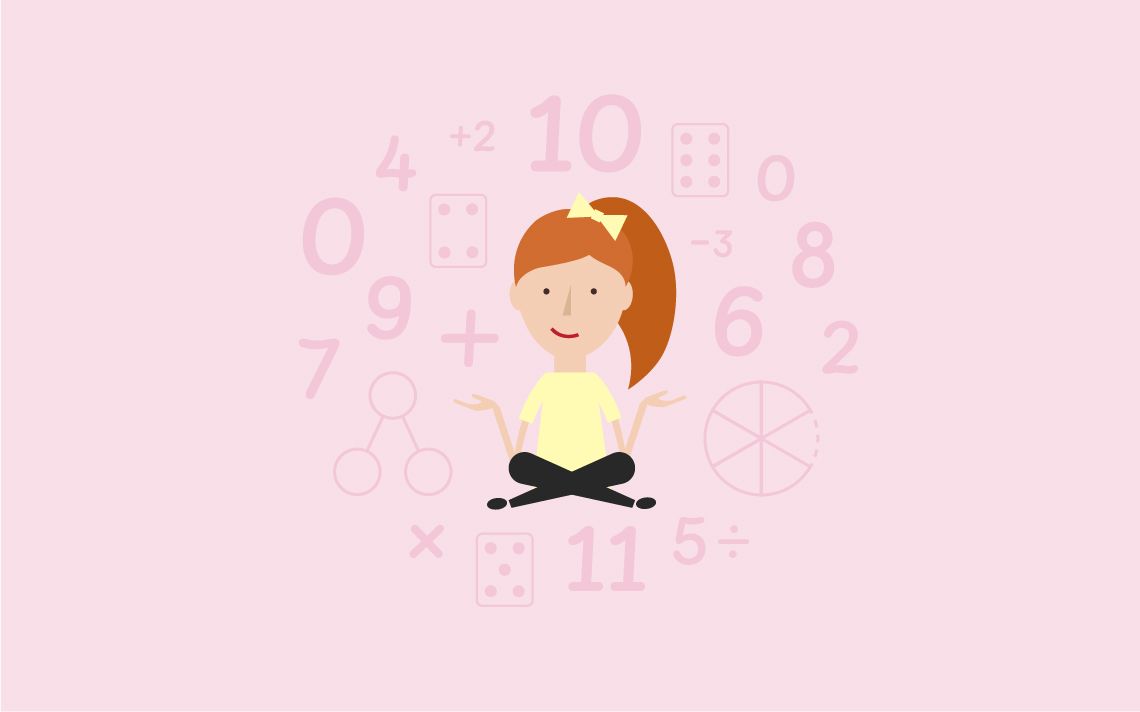Number Sense Explained: How it fuels maths success
Editor’s Note:
This is an updated version of a blog post published on September 14, 2017.
Number sense is the ability to be flexible with numbers. It helps children understand both how our number system works, and how numbers relate to each other.
Number sense is one of the most important skills for a pupil to develop in order to fully understand and master mathematics. But how does one build number sense in children? And how do you know when a pupil is struggling with number sense? In this blog, we will cover what number sense is, how to notice where pupils are in their number sense journey, and how to strengthen number sense in the classroom.
What is number sense?
Number sense refers to a child’s fluidity and flexibility with numbers. It helps children understand what numbers mean, improving their performance of mental mathematics and giving them the tools to look at maths in the outside world and make comparisons.
Children develop number sense gradually over time and at different rates through exploring numbers, visualising them in a variety of contexts, and relating them in ways that are not limited by formal written methods.
Flexibility with numbers is the key to number sense.
Number sense is the ability to be flexible with numbers. It helps children understand both how our number system works, and how numbers relate to each other. Children who develop number sense have a range of mathematical strategies at their disposal. They know when to use them and how to adapt them to meet different situations.
The science behind number sense
Psychologists Klein and Starkey (1988) found that we are born with a sense of number. They measured the focus time of babies looking at pictures of dots and discovered that when the number of dots changed the babies’ focus time changed. These babies had appreciated a difference in numerical quantity.
Appreciating number quantity is a survival instinct. When our ancestors were out hunting and gathering they needed to be able to perceive danger. So, if one animal approached a couple of hunters, they saw this as an opportunity for a meal. However, if 10 animals approached them, they ran, or they became the meal!
The key components of number sense
The National Council of Teachers, an American educational body, in 1989 identified the five key components of number sense. These are:
- Number meaning
- Number relationships
- Number magnitude
- Operations involving numbers
- Referents for numbers and quantities
Having a strong number sense allows pupils to recognise quantities, estimate or subitise, problem-solve and understand numerical relationships. These are all necessary maths skills for a pupil to become a strong mathematician with a deeper understanding of the why behind the maths.
We know that very young children can recognise the number of items in a group without having to count them. This is called subitising. Most people, but not all, can subitise up to six or seven items, when they are randomly arranged.
The importance of number sense in mathematics
Number sense is an important construct that separates surface level understanding from subject mastery, making it a key skill in maths mastery. Having a strong number sense helps pupils gain a deep understanding of mathematical concepts and gives them the flexibility to problem-solve.
Boost Your Practice with FREE CPD
Receive a CPD boost every time you refer a school! Both you and the referred school will earn a full day of CPD and 2 free places on our 3-day Essentials of Teaching Maths Mastery course (valued at £1700).
Get started on helping struggling schools reach maths success now!

Strategies for teaching number sense
Understanding the importance of number sense is one thing, but how do we bring it into the classroom? Here are some ideas to help build your pupils' number sense skills:
Activities for early years
Number Matching Cards
Matching number cards with quantities, like dots or pictures of objects, can help pupils recognise numbers and associate them with quantities.
Base 10 Blocks
Have pupils play and experiment with Base 10 Blocks or building blocks to help them build a strong understanding of quantities and spacial relationships, as they use the blocks to count, stack and create structures.
Dot Cards or Dice
Show a flashcard with a dot pattern or roll dice and have pupils quickly recognize quantities without counting. This activity builds their subitising skills.
Sand and Water Play
Take containers of different sizes and fill them with sand or water. Ask your pupils questions regarding which container has more, is less, and if they are equal. This allows pupils to visually learn these concepts and build an understanding of the concepts of more, less and equal.
Counting Objects
Taking moments to do simple activities like counting toys, snacks or steps as they walk help young pupils practice one-to-one understanding between maths in the real world and the numbers.
Boardgames
Simple boardgames, such as Snakes and Ladders and Candy Land, can help pupils practice counting as they move spaces on the board after rolling the dice.
Activities for older pupils
Estimation Jar
To build pupils' estimation skills try filling a jar with a large number of small objects (like beads or marbles) and have students estimate the number of items in the jar. This can also become a fun game with the pupil closest to the number winning a prize. This can also work as a group activity. Pupils in groups can work together to discuss their estimation strategies and reasoning before setting on a final estimation.
Real-World Maths Problems
Real-world maths problems require pupils to find maths in the world outside the classroom and build on their number sense. Some examples include budgeting for a project, planning a trip, or comparing prices while shopping.
Maths Games
Maths games such as '24 Game' where students must use four numbers and any operations to get the result of 24, Sudoku puzzles, or Maths Bingo are fun ways of teaching number sense.
Number sense develops over time through opportunities to explore and play with numbers. Visualising numbers in different contexts, spotting relationships between numbers and predicting the patterns all contribute to good number sense.
Characteristics of good vs. poor number sense
What good number sense looks like:
Strong number sense helps children manipulate numbers to make calculations easier and gives them the confidence to be flexible in their approach to solving problems.
Children who develop number sense can assess how reasonable an answer is, and routinely estimate answers before calculating. They look for connections and readily spot patterns in numbers, which helps them predict future outcomes. They have several approaches to calculating and problem-solving and can use and adapt these for new situations.
Children with good number sense enjoy playing with and exploring numbers and number relationships. As a result of these strategies, they can often find the most efficient solution to the problem.
What poor number sense looks like:
Children with poor number sense tend to focus on procedure and will rely on methods that they feel secure with. They apply inefficient and immature strategies to calculations and fail to spot links and connections that could get them to the answer more quickly.
Often, children with weak number sense prefer to use pen and paper rather than working things out in their heads and doing mental math. They can be reluctant to estimate an answer before working it out and will generally accept whatever answer they get — without considering whether it is reasonable or not.
This was perfectly illustrated to me when a Year 5 child was trying to estimate the sum of two four-digit numbers before calculating the answer. She approached this task by calculating the answer and then giving an estimate. I asked her why she was doing it that way around and her reply was, “It is much easier to find an estimate for the answer after you have worked out what the answer is.” You have to admire her logic — if nothing else!
Children with poor number sense don’t enjoy maths and won’t spend time being creative with and exploring numbers. Ironically, they are doing a harder version of maths, that relies upon remembering and applying procedures, with little understanding of the underlying numerical concepts. Try some of the fun activities included above and see if that helps your struggling pupils in building a stronger number sense.
Helping pupils with dyscalculia build strong number sense
Having a disability that affects maths, such as dyscalculia, can make number sense an even more difficult skill to acquire and build. Pupils with dyscalculia struggle to understand and perform number-based operations and learn maths. These struggles make number sense hard for those with dyscalculia as number recognition, counting, understanding maths concepts, estimation, sequencing, and more is even more challenging to overcome.
Manipulatives are great for pupils with dyscalculia because these help them visualise maths and build their understanding of numbers. References such as a number line or a partially filled out multiplication chart help pupils with dyscalculia when practicing maths. Also, using precise and consistent maths terms helps those with dyscalculia to avoid confusion.
Tracking number sense development in pupils
You can track pupils' number sense progress by checking for the following:
- An awareness of the relationship between number and quantity
- An understanding of number symbols, vocabulary and meaning
- The ability to engage in systematic counting — including notions of cardinality and ordinality
- An awareness of magnitude and comparisons between different magnitudes
- An understanding of different representations of number
- Competence with simple mathematical operations
- An awareness of number patterns including recognising missing numbers
In short, helping pupils develop strong number sense is crucial for their success in maths. When pupils understand how numbers work and relate to each other, they become better at mental arithmetic, spotting patterns and solving problems. Using fun and engaging activities in the classroom can make learning about numbers enjoyable and help pupils build a solid maths foundation. By continuously practising and exploring numbers, we can set our young mathematicians up for long-term success in maths and beyond.
Learn more:
Early Years Maths Mastery: Boosting number sense
What is Subitising? A hidden gem in developing mental arithmetic skills
6 strategies to help pupils develop an early understanding of place value
